Wildlife Safari and Cultural Tour of Sri Lanka,
Undertaken by Mel and Mary Owen, 17th to 29th August 2018
The following is a very brief account for friends and family, illustrated with just a few of the 900 photos we took. A very full account has also been documented by Mary, this brief account being Mel's.
Day 1: 17th August 2018:
We left Heathrow 21.30 Thursday 16th in a wide-bodied Sri Lankan Airline Jumbo Jet and landed at Columbo 12.45 on Friday 17th. We were picked up on our arrival by Kasun, our personal tour leader/driver who would accompany just the two of us, using his own car, throughout our entire stay. We were taken to a comfortable hotel just outside Columbo, where we could relax and recover from our journey. The hotel was right on the beach, along which we strolled in the afternoon. The temperatures were high, as expected, but there was a strong breeze which made everything comfortable.

Shore-line ready-to-eat food stalls

Typical local paddle-powered fishing boats
Day 2: 18th August 2018:
We were collected after breakfast and had a 2-hour drive to the Kaudulla Safari Park. Here we transferred to our own Jeep and driver for the off-road tour of the area. We saw water buffaloes, iguanas, chameleons, a land monitor, various birds including an eagle, an egret, snakes, two crocodiles, a whole tree full of squabbling monkeys, grey langur monkeys, toque macaque monkeys and chipmunks, but the highlight was encountering at close quarters large herds of Indian elephants. I had not previously been aware that nursing female elephant udders were between their fore-legs and offspring were nursed to the age of 5. We followed the herds for a long time, probably encountering around 150. Only the males of this sub-species have tusks, so the only tusked elephants we saw were juniors (pre-puberty?). Adult males are either driven off or leave of their own accord, this obviously being essential to avoid incest. Afterwards, we were taken to our next hotel, at Sigriya, where we spent the next 3 nights. En route we passed a lot of coconut trees, ripe with fruit.
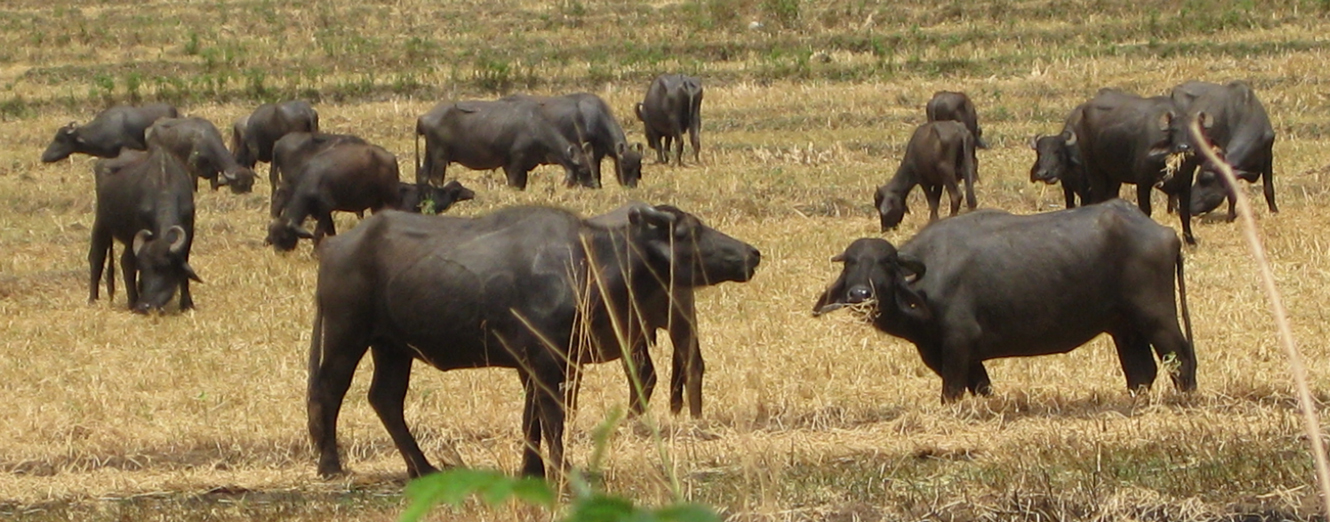
Water Buffalos dining on harvested rice paddy fields

Elephant herd
Day 3: 19th August 2018:
In the morning we were taken on a very detailed and comprehensive tour of the Anuradapura Heritage Site. We saw a considerable number of Buddhist Stupas, some very large indeed, and some more than a thousand years old. We had to remove our shoes to walk round them, which must always be done in a clockwise direction. Unlike Egyptian pyramids, Buddhist Stupas are generally made of solid brickwork without passages or burial chambers (Buddhists always cremate).
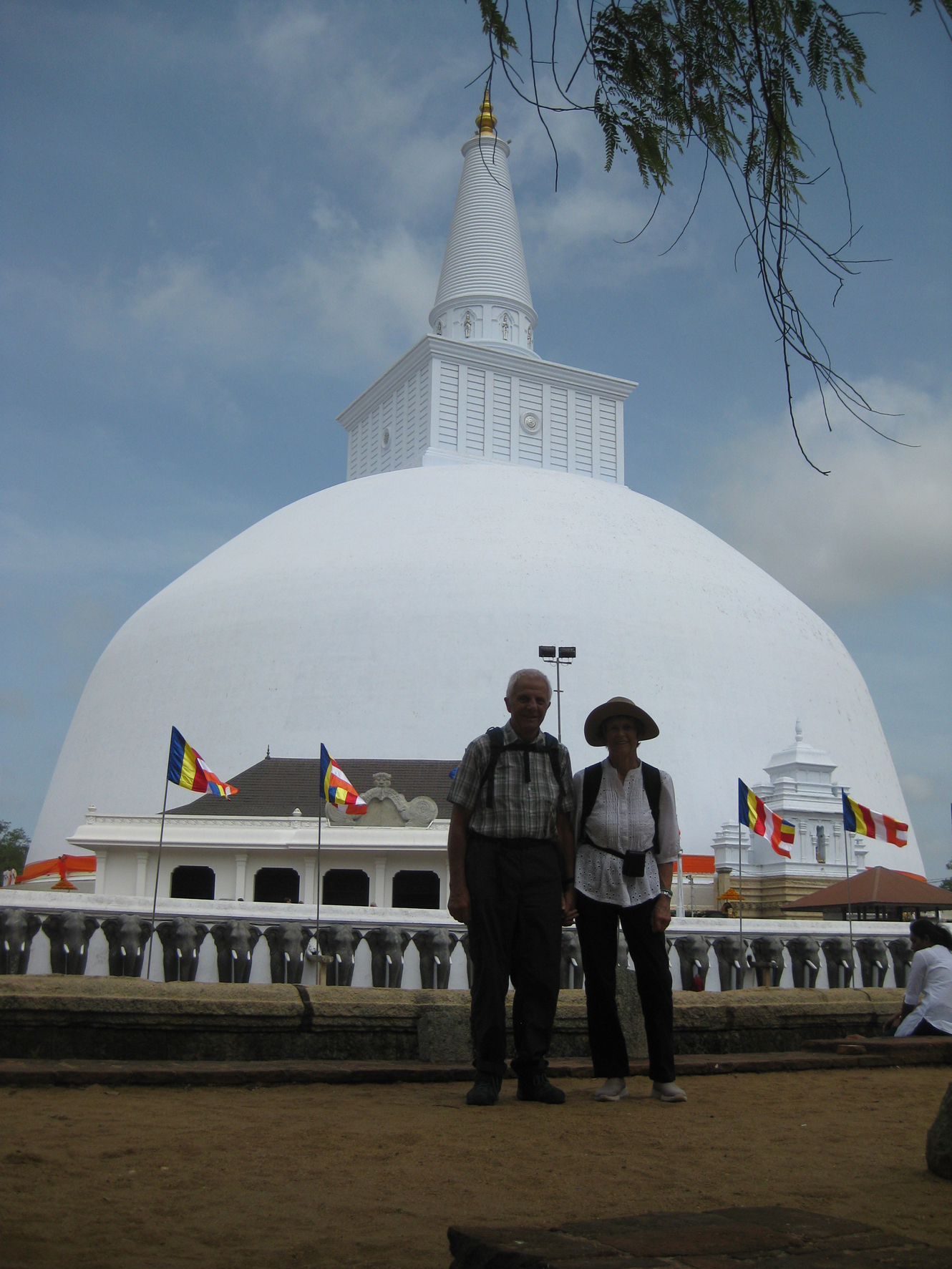
One of very many Buddhist Stupas...
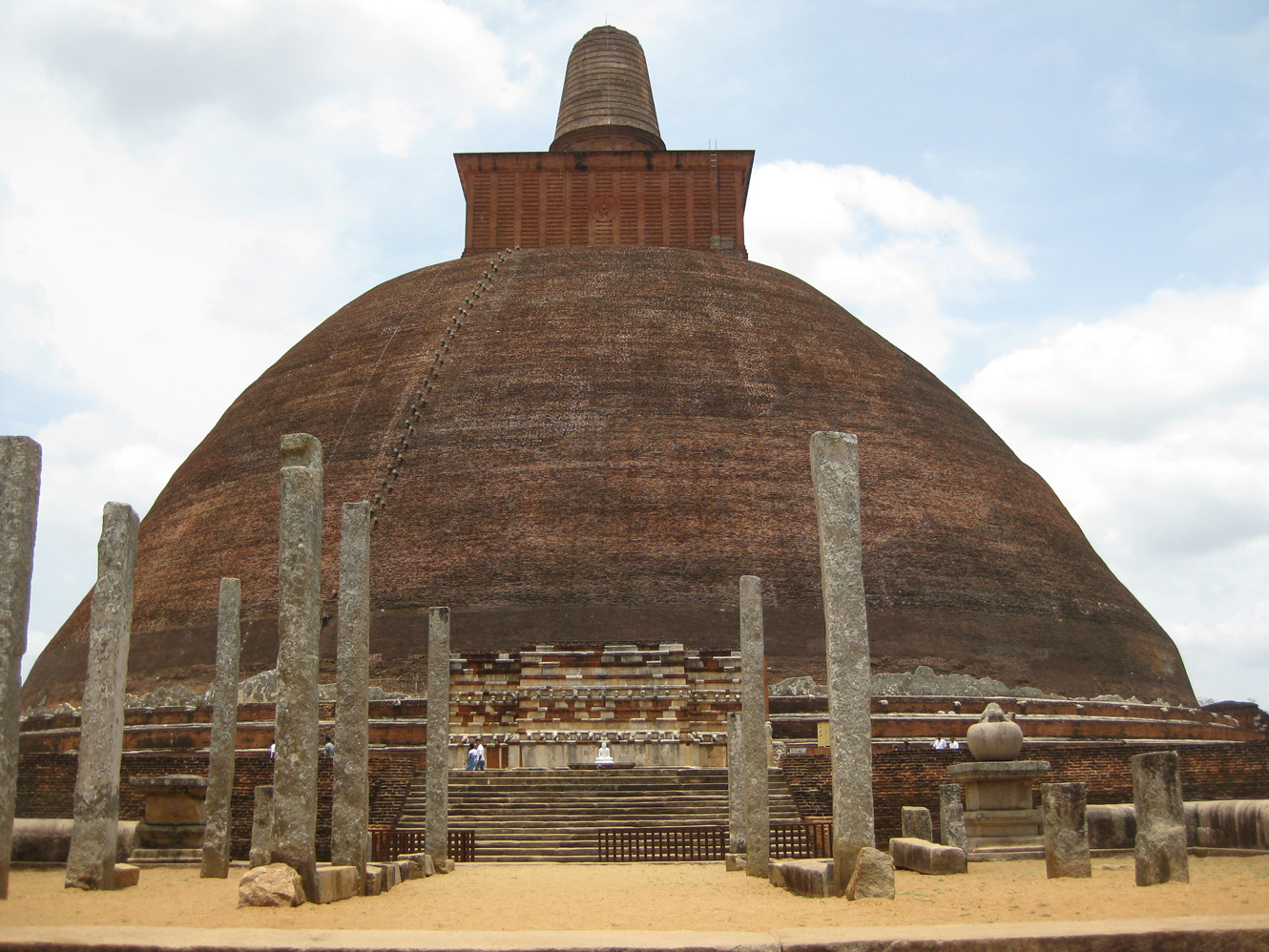
...and another
We saw a large carved block of stone from where curry was served to 5,000 buddhist monks at a time, plus a larger one which held the rice, and several large buddhist bathing pools. We also enountered several semicircular moonstones, each with the same repeated succession of four creatures, a lion, an elephant, a horse and a bull.
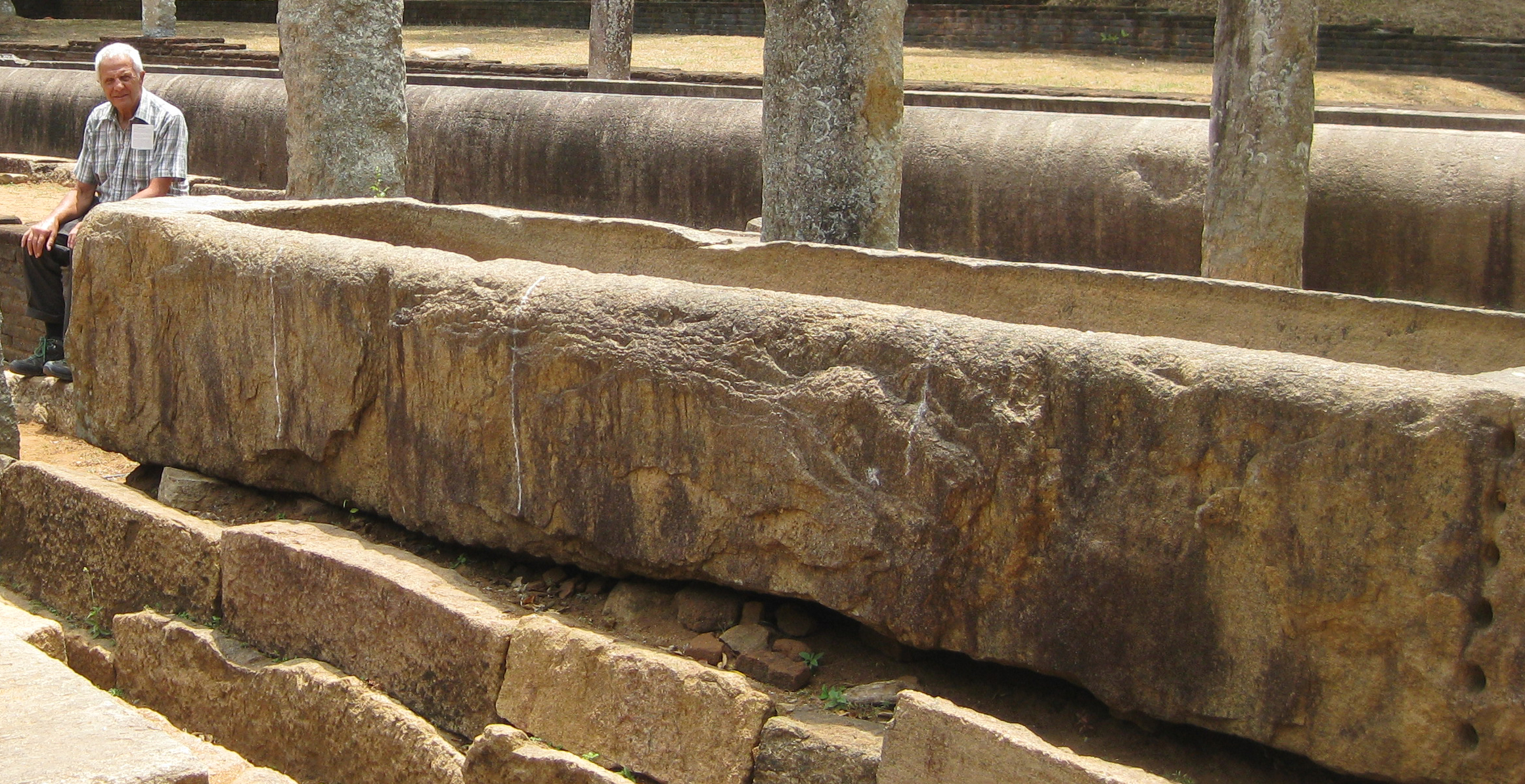
The curry serving 'bowl' in the foreground, the rice 'bowl' behind it
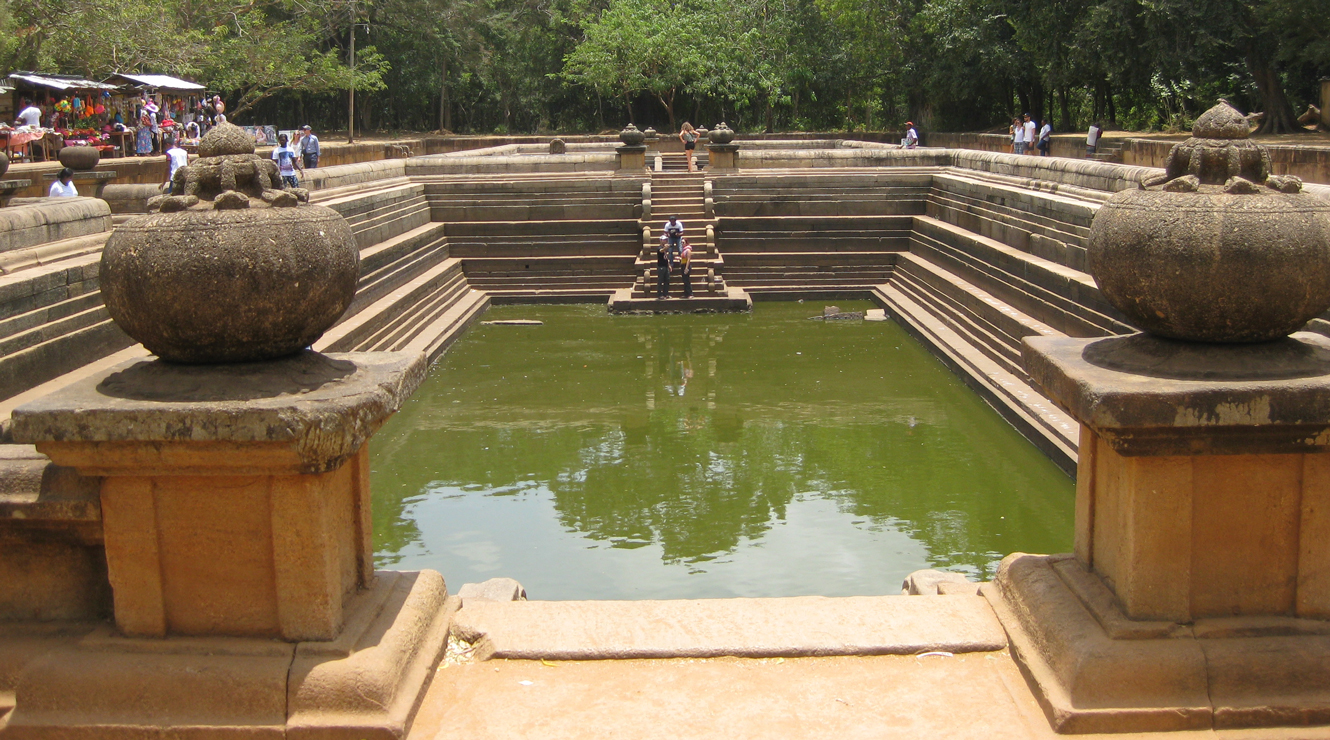
Ancient bathing pool for Buddhist monks
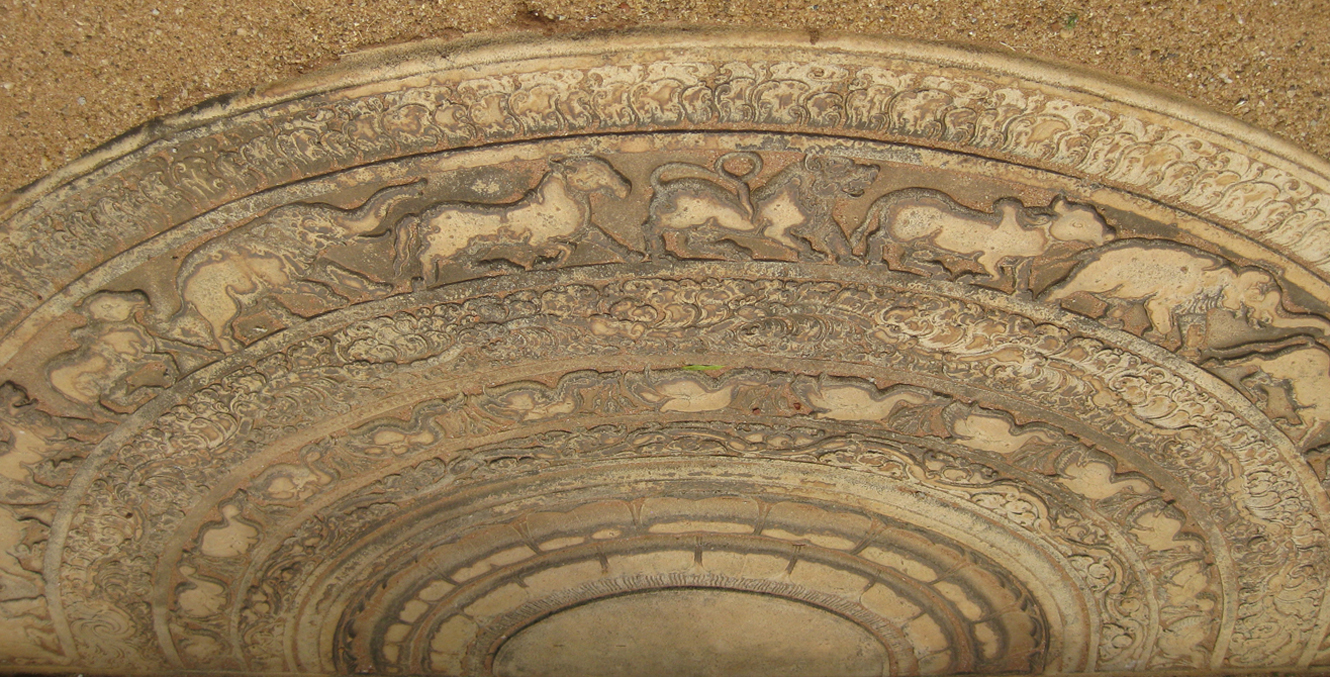
Typical semi-circular Moonstone
In the afternoon we visited a very old village, approaching it in two stages, firstly by riding in a Bullock Cart and then by crossing a river and lake by paddle-powered catamaran, returning in a tuk-tuk.
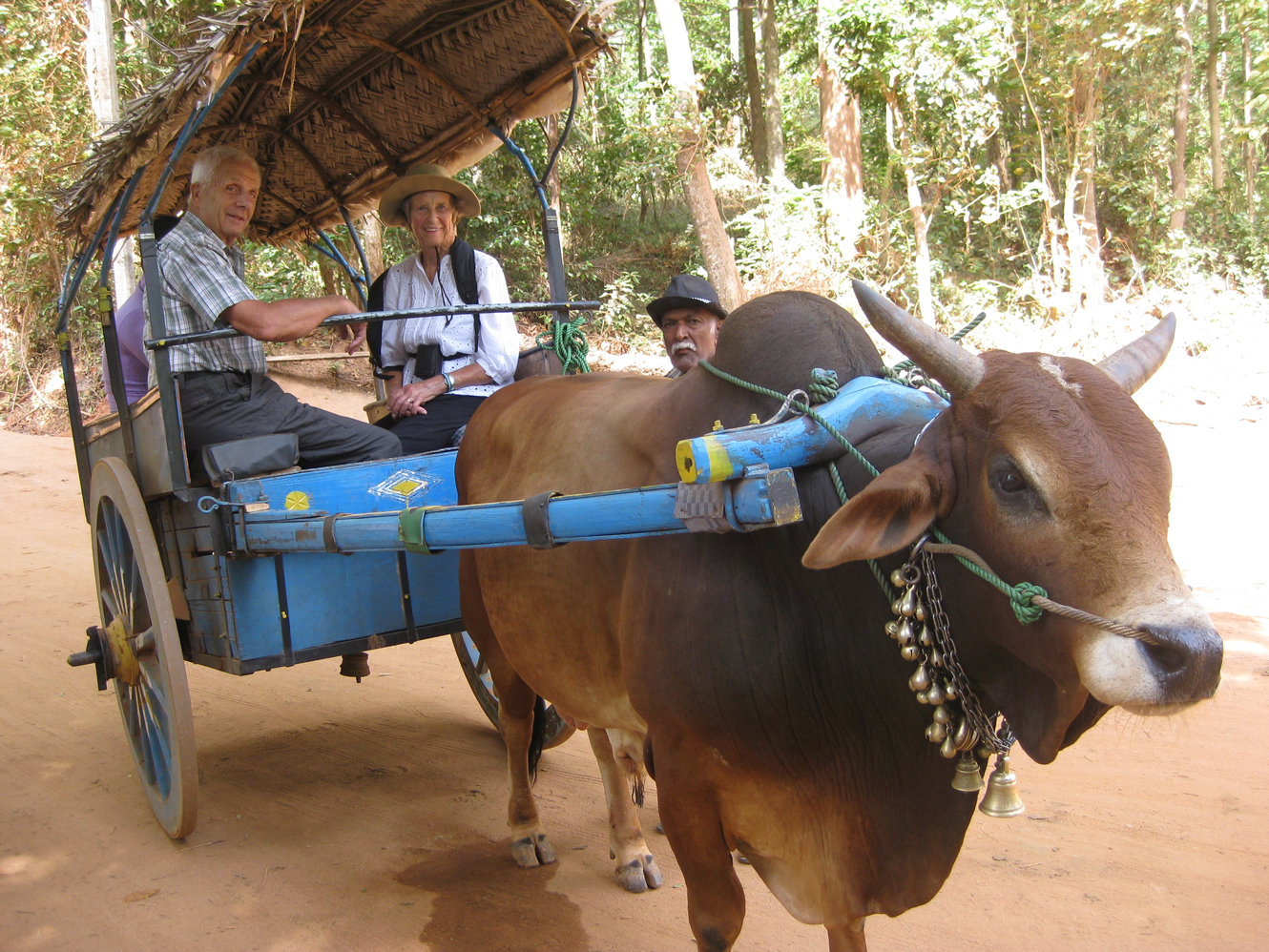
Riding our Bullock Cart
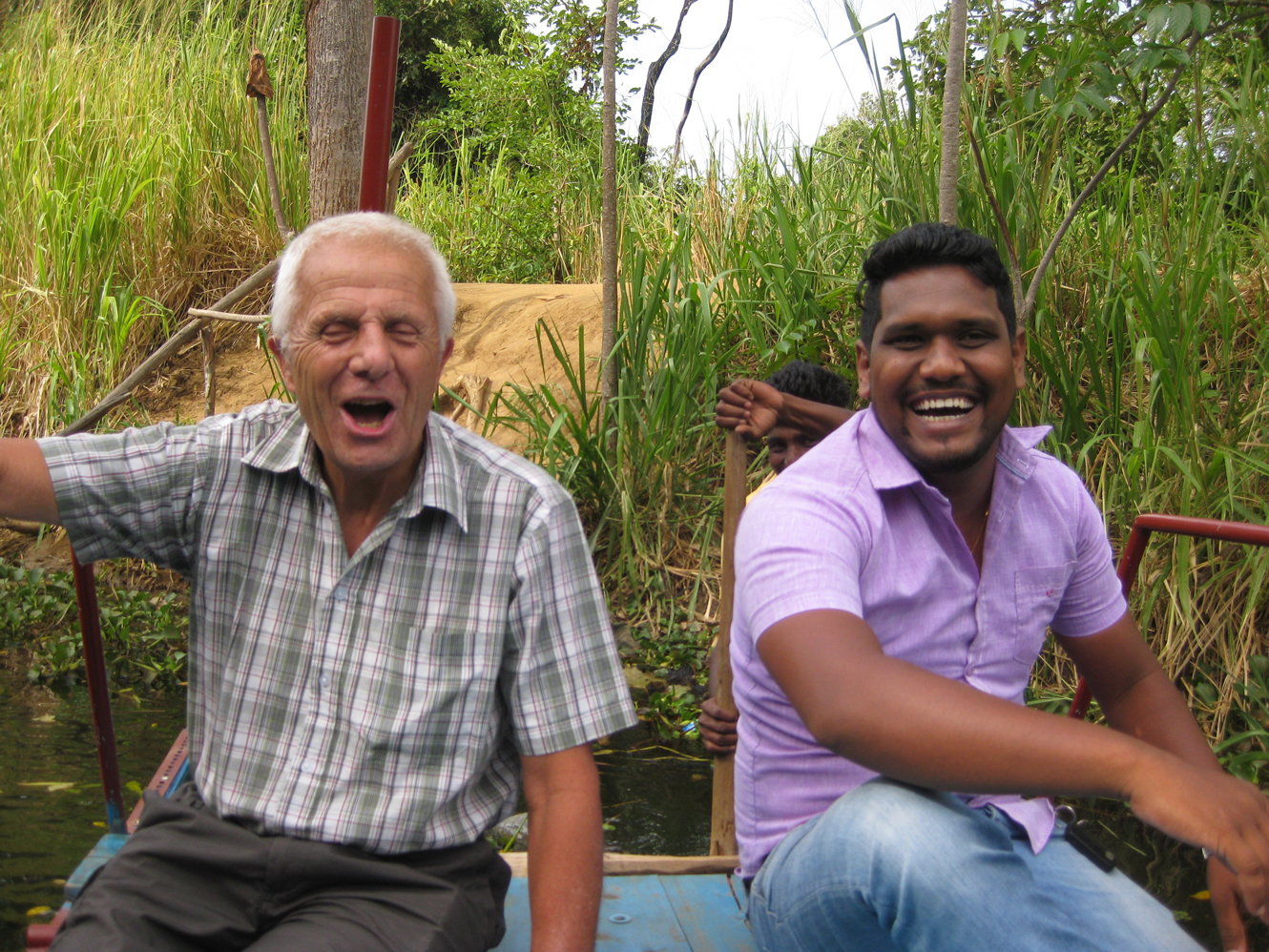
Mel and Kasun on the boat ride
Day 4: 20th August 2018:
The highlight of the morning was climbing 1,200 steps to the historic and imposing Sigiriya Rock Fortress, surrounded by a moat, and at one time a drawbridge, with our own English speaking guide, a trip which took 2 hours since there was so much to see.
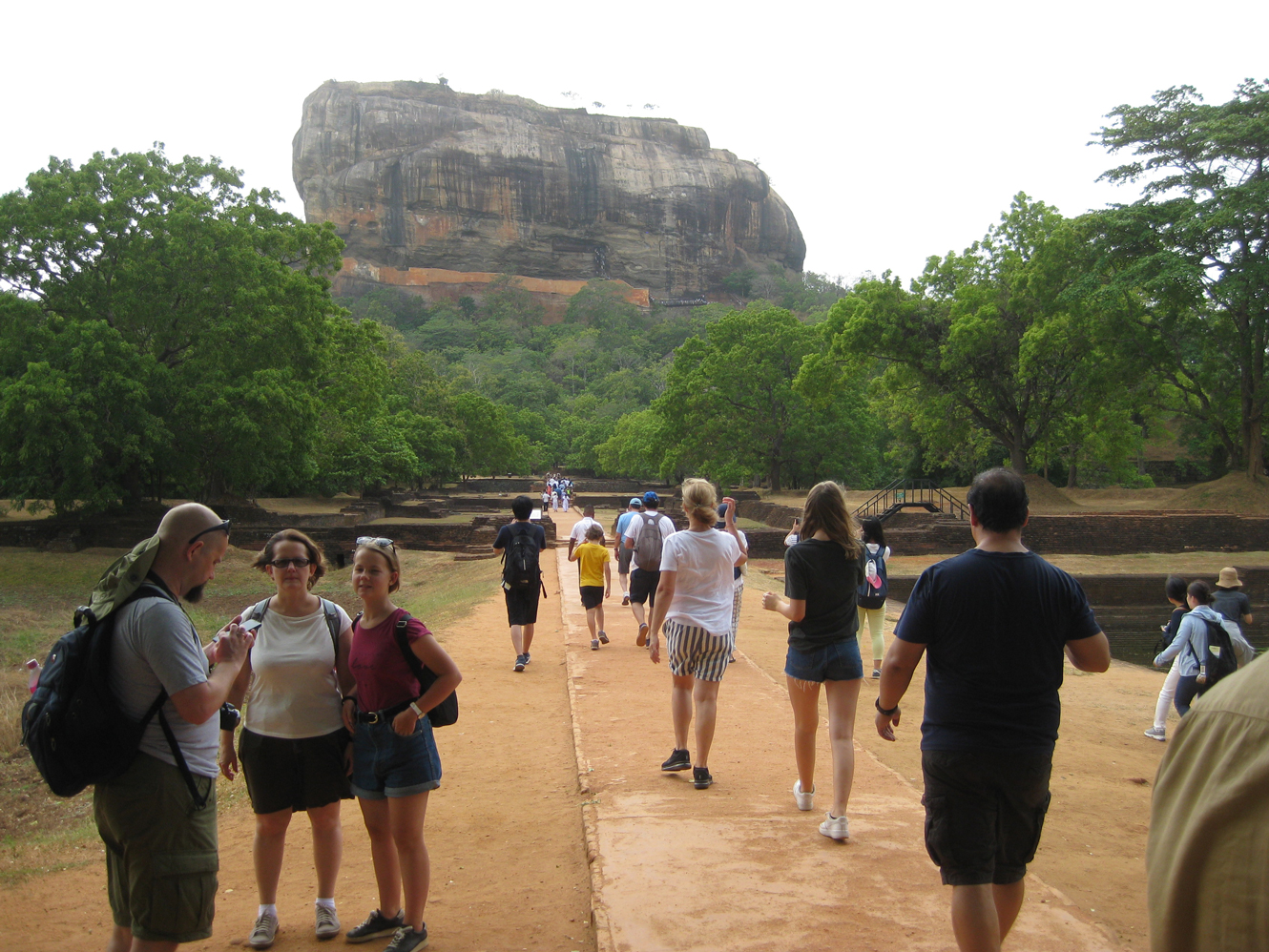
The Rock Fortress
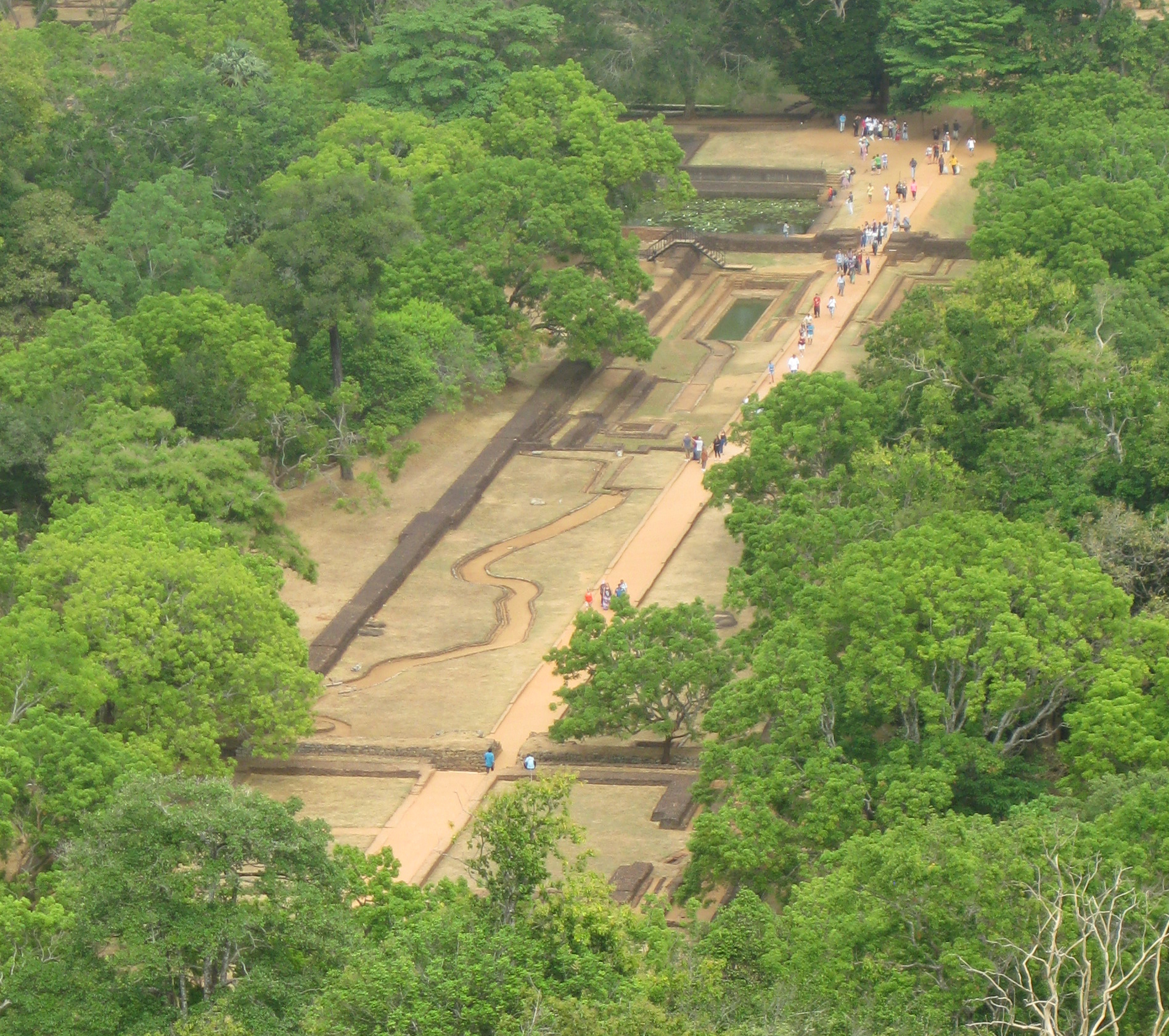
Looking back down

A view from the top
In the afternoon Kasun took us to the Polonnaruwa heritage site, where we had our own guide to explain everything, and where we saw a lot of Buddha statues.
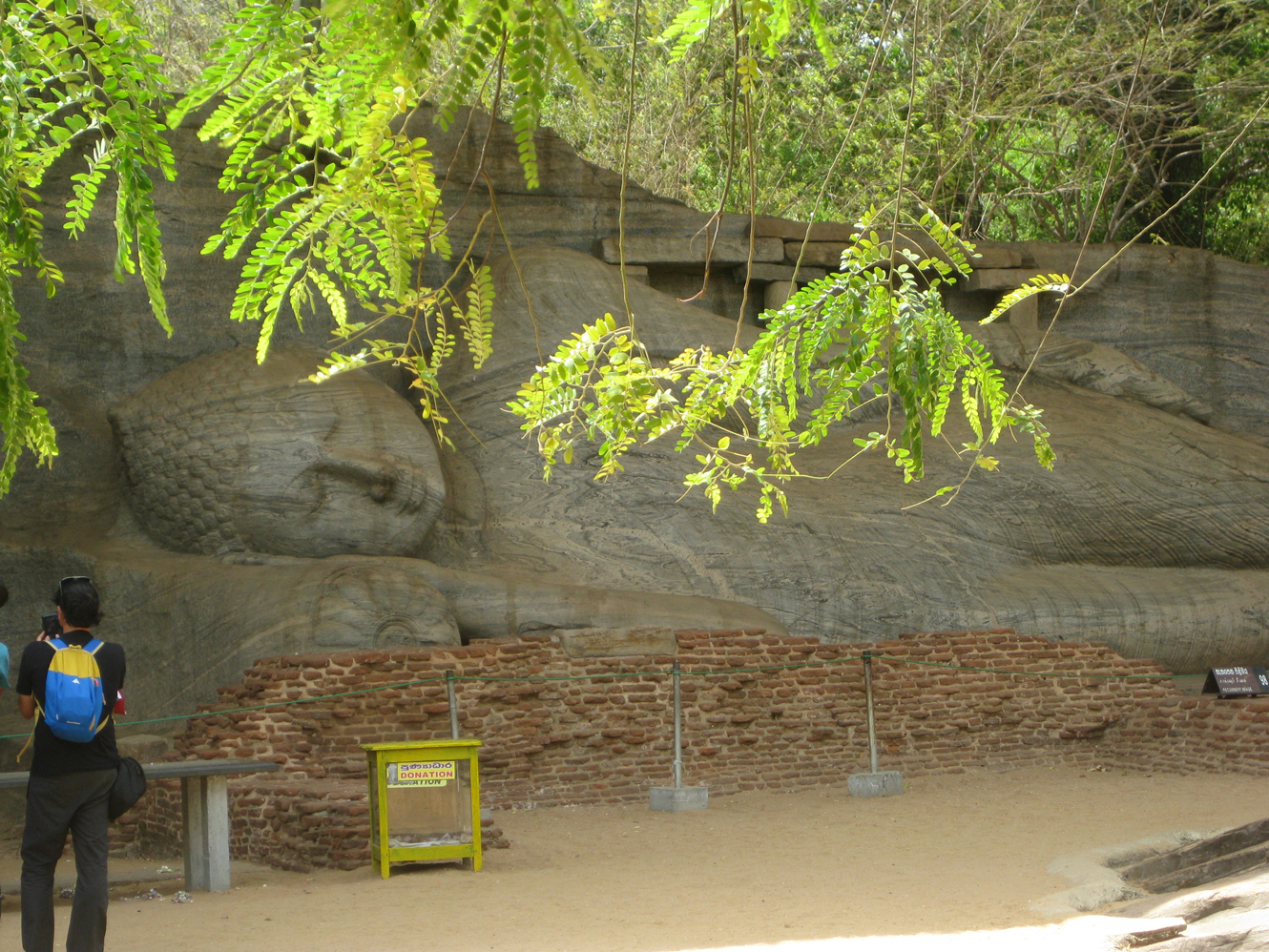
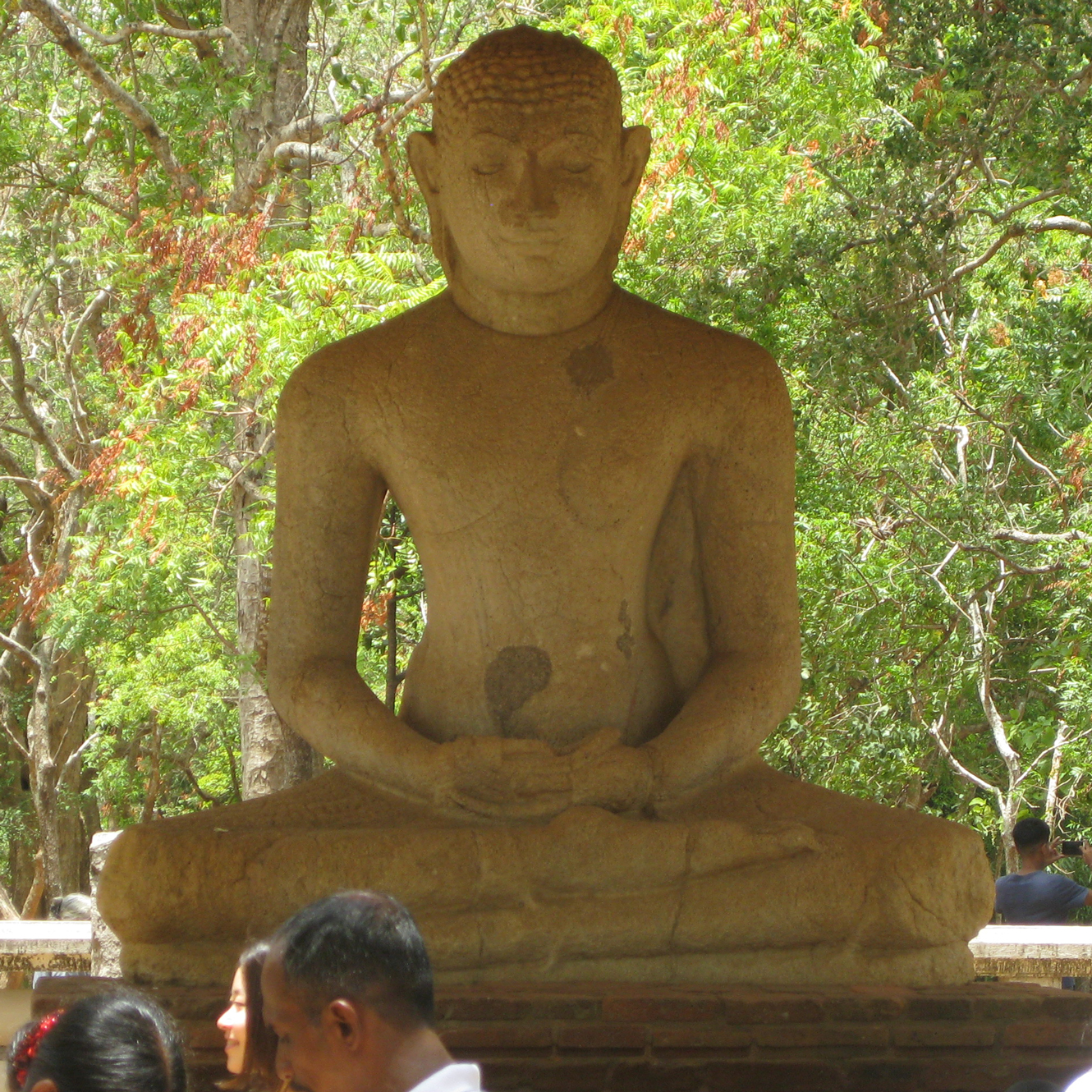


Day 5: 21st August 2018:
Our first stop was to explore the Golden Temple and then the Dambulla Cave Temple complex, where we saw 153 Buddha statues and some original very old ceiling paintings. The cave complex had been built by King Walagamba who sheltered there for 14 years in exile, and who died in 77BC.
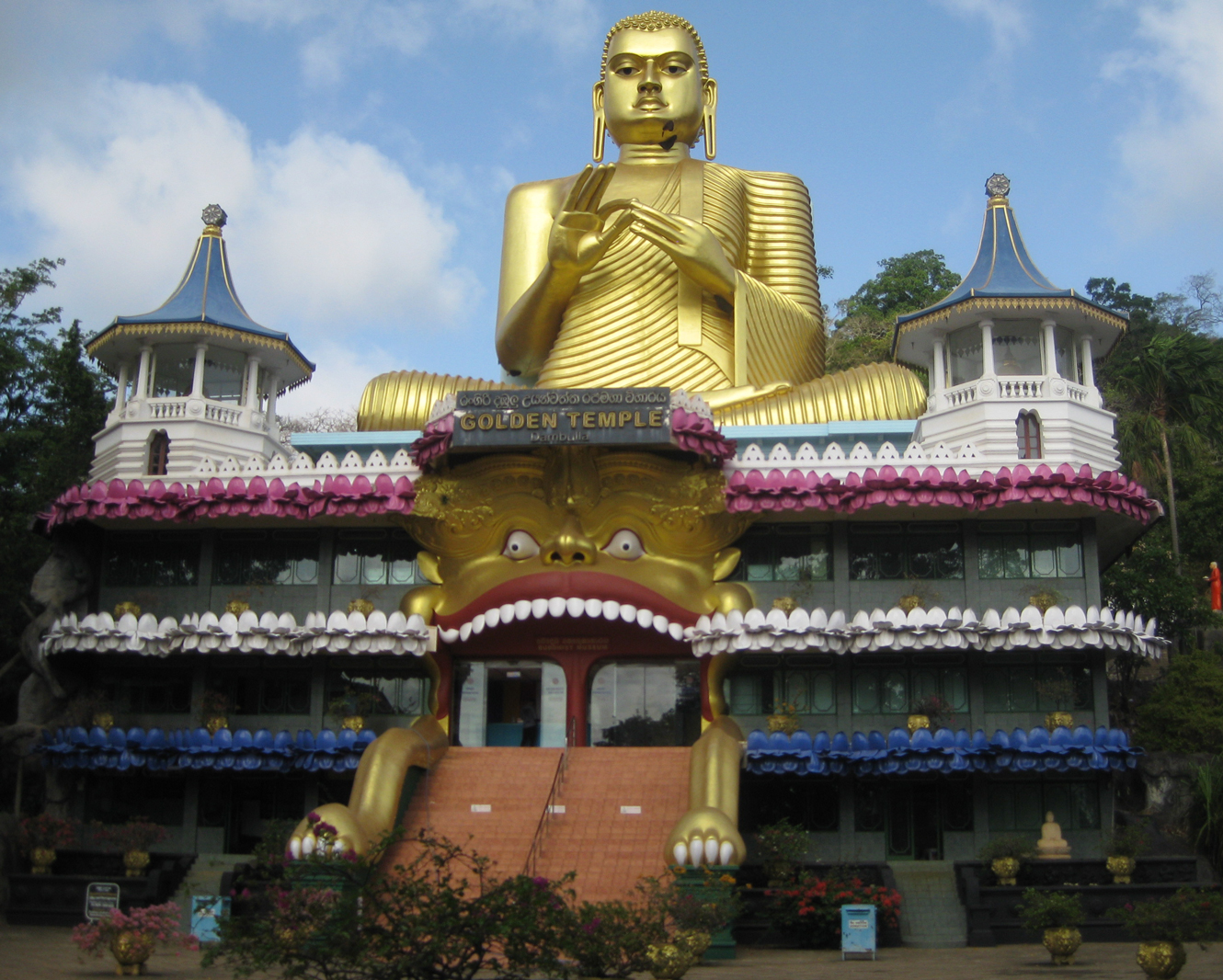
The Golden Temple
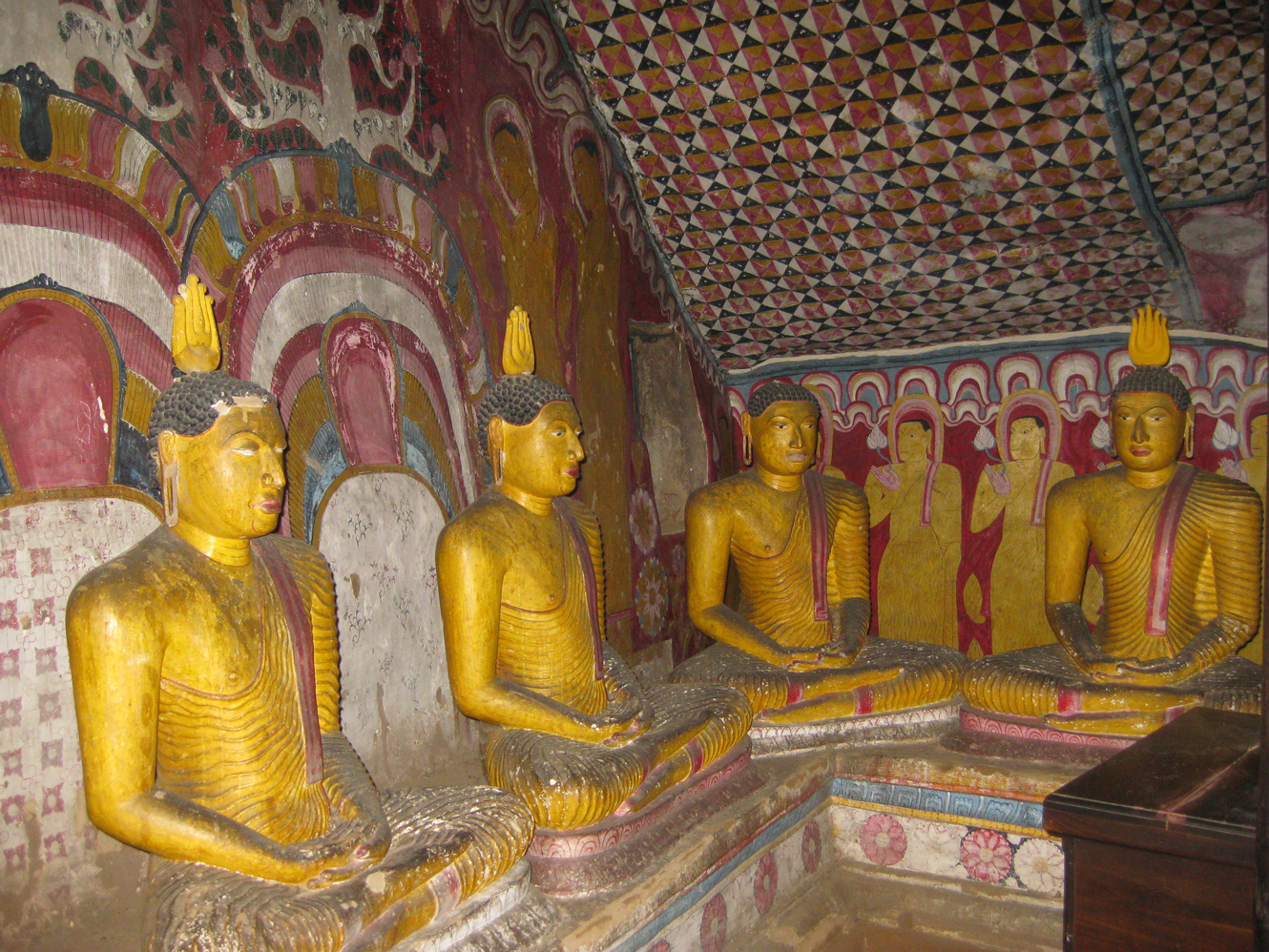
Inside the cave complex
Our next stop was the Ayurvedic spice gardens at Matale, which were very interesting, but somewhat spoilt at the end by an attempted hard sell.
We then checked into our next hotel, in Kandy, before going to the highlight of the day, which was to have excellent seats to watch the Kandy Esala Perahera, a road procession running from 19.10 until 23.15. Our hotel had given us each a picnic box in lieu of an evening meal. The procession takes place daily at that time of year, and the pavements were over-run by excited Buddhist spectators, including young children, all sitting on polythene sheets on the ground, for whom the event has special religious significance. The procession included dancers, singers, musicians, acrobats and around 40 well-dressed elephants. Photographing it adequately was made difficult by a total ban on flash cameras.
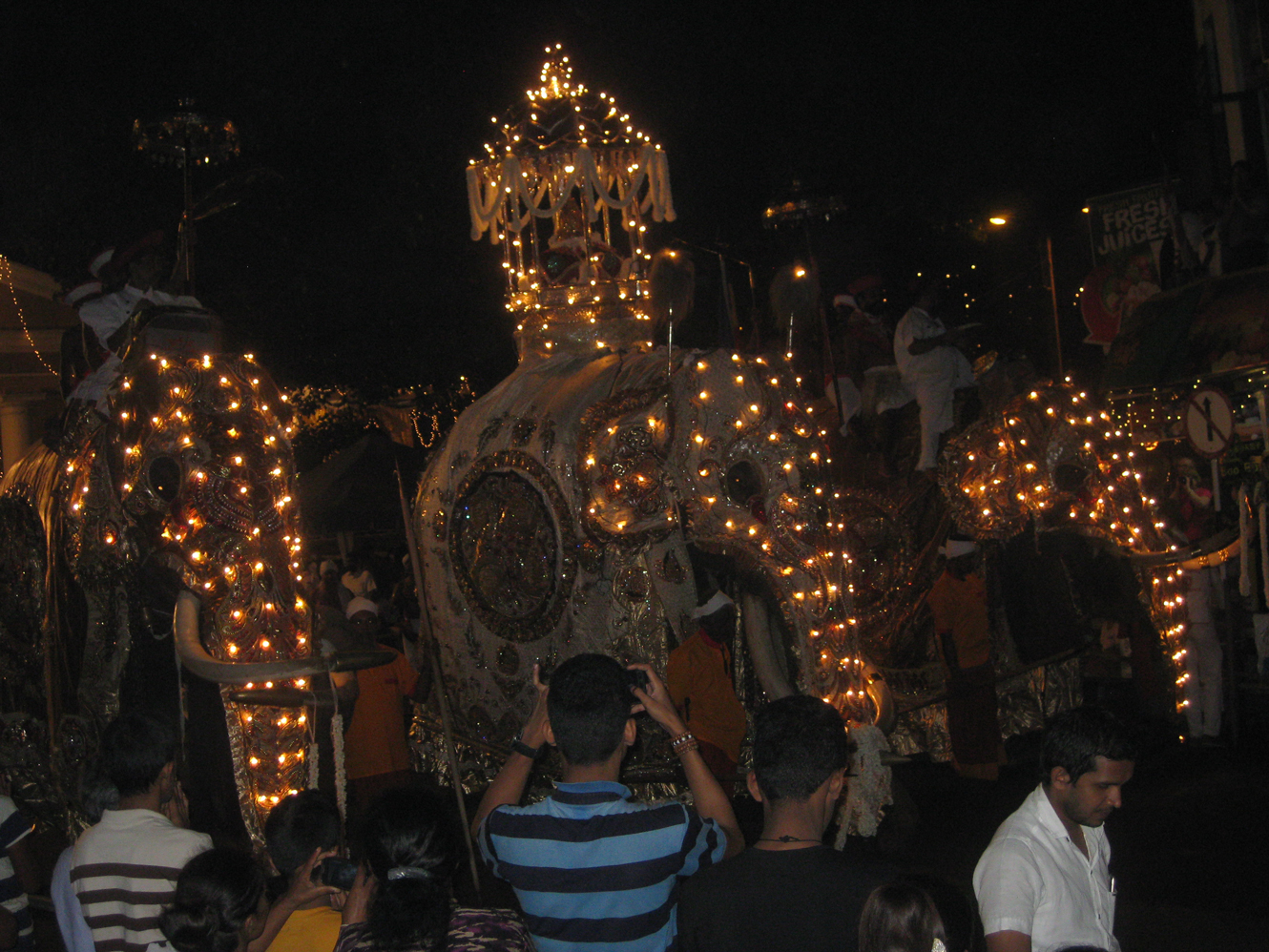
The evening parade
Day 6: 22nd August 2018:
In the morning we spent 3 hours exploring the Royal Botanical Gardens, founded in 1821, with its very interesting collections of trees, cacti, orchids and many plants new to us. We also saw fruit bats, turtles and a snake. (Kew Gardens opened in 1840)
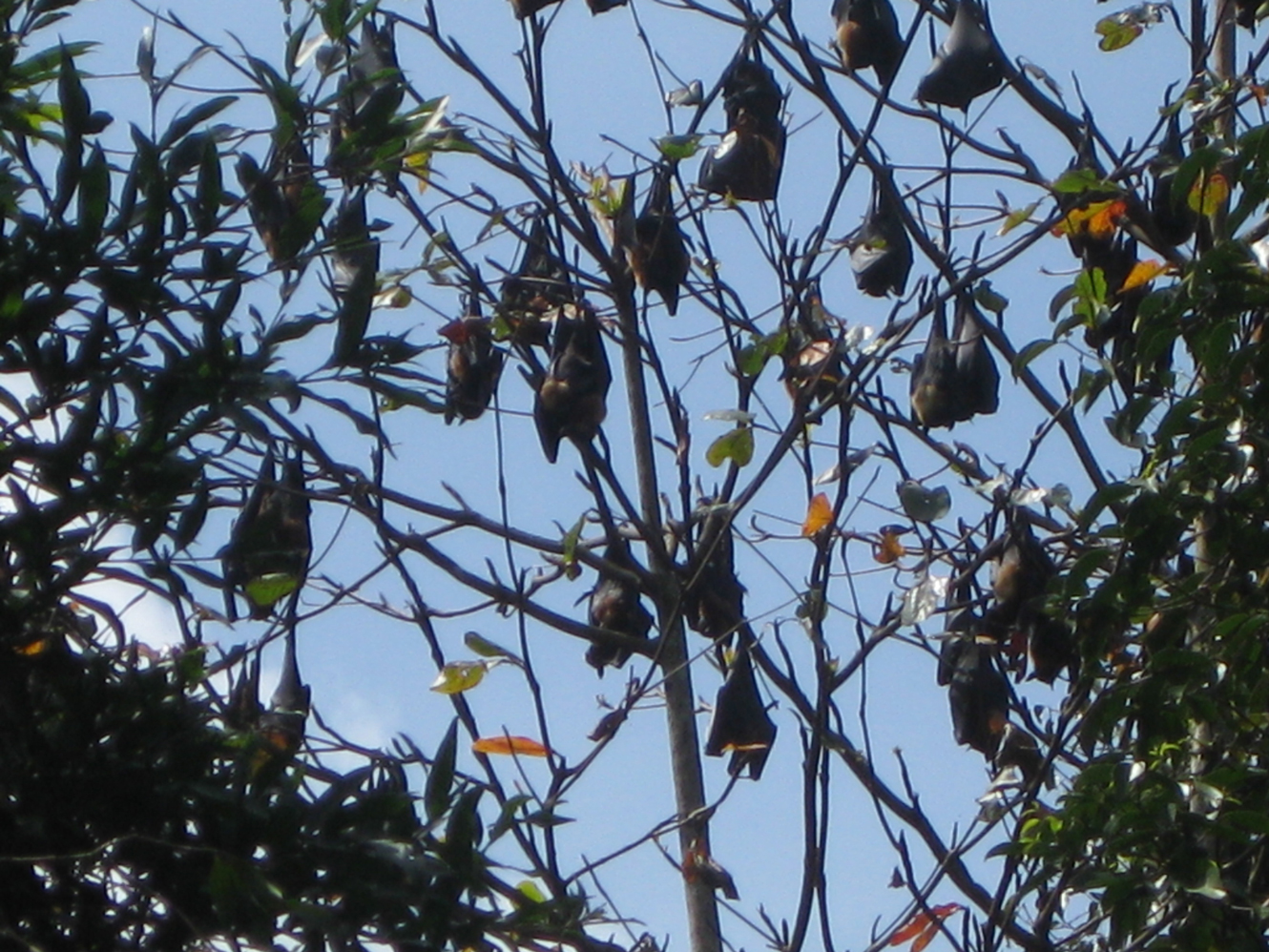
Fruit Bats
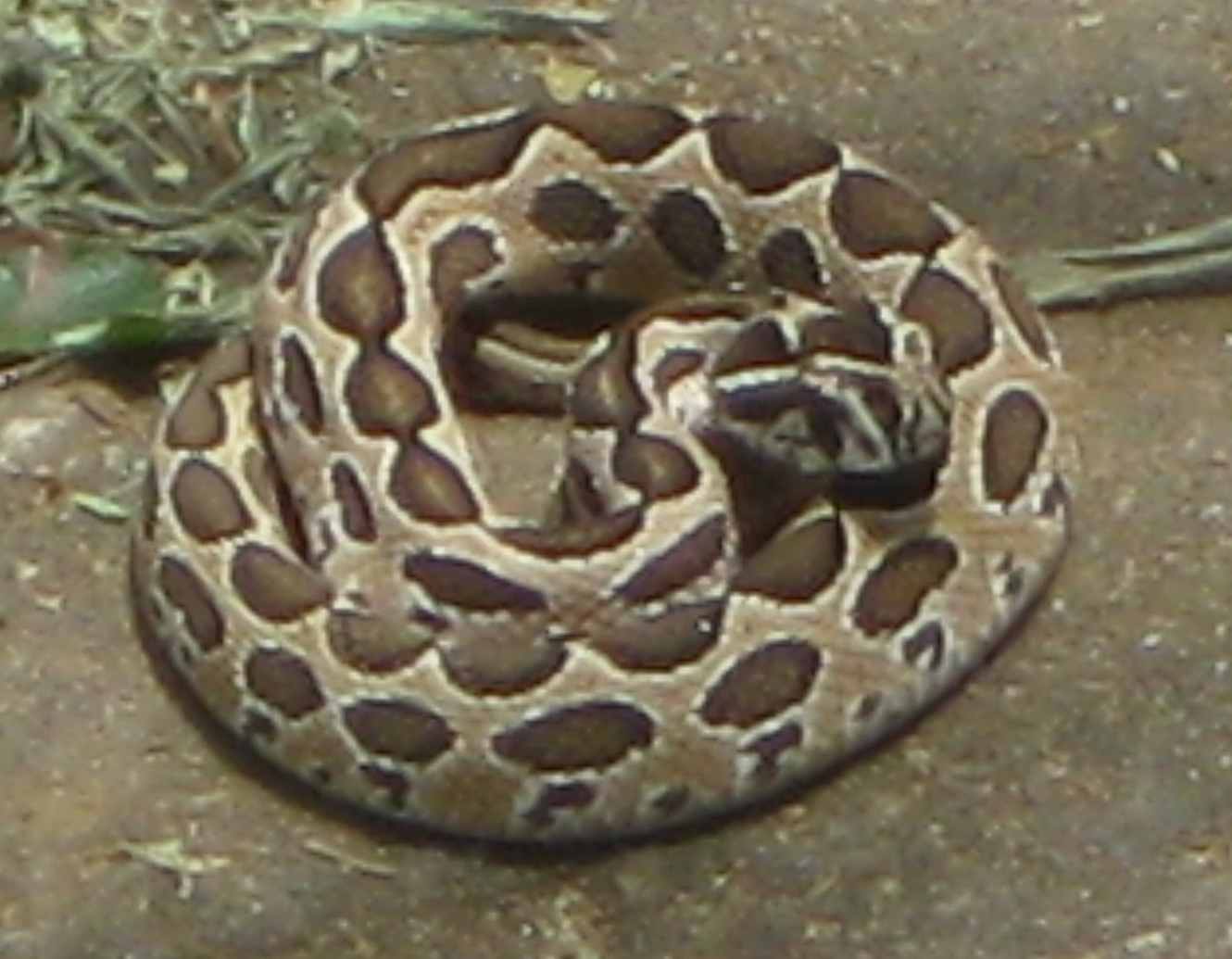
Large snake
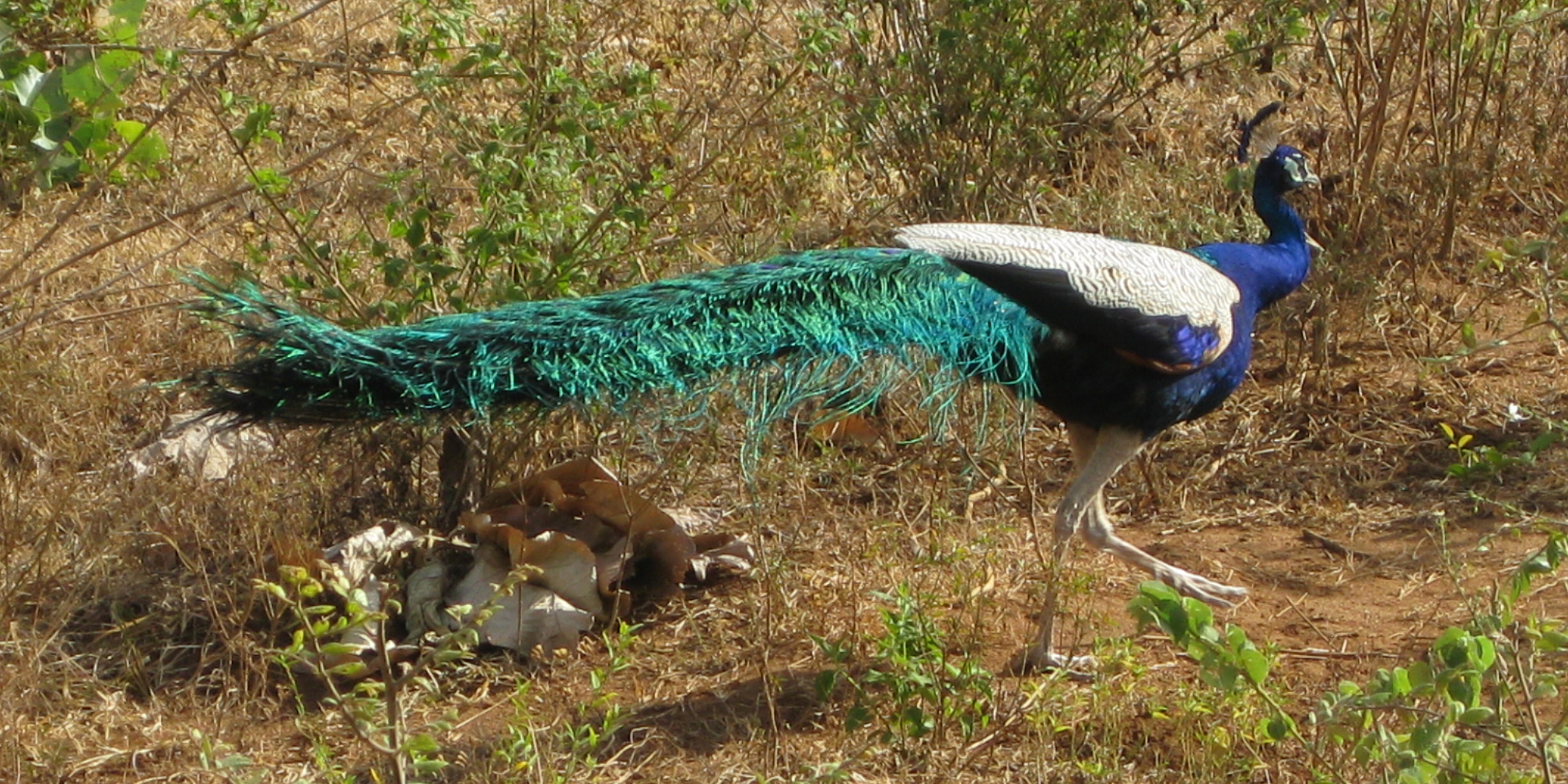
Peacock
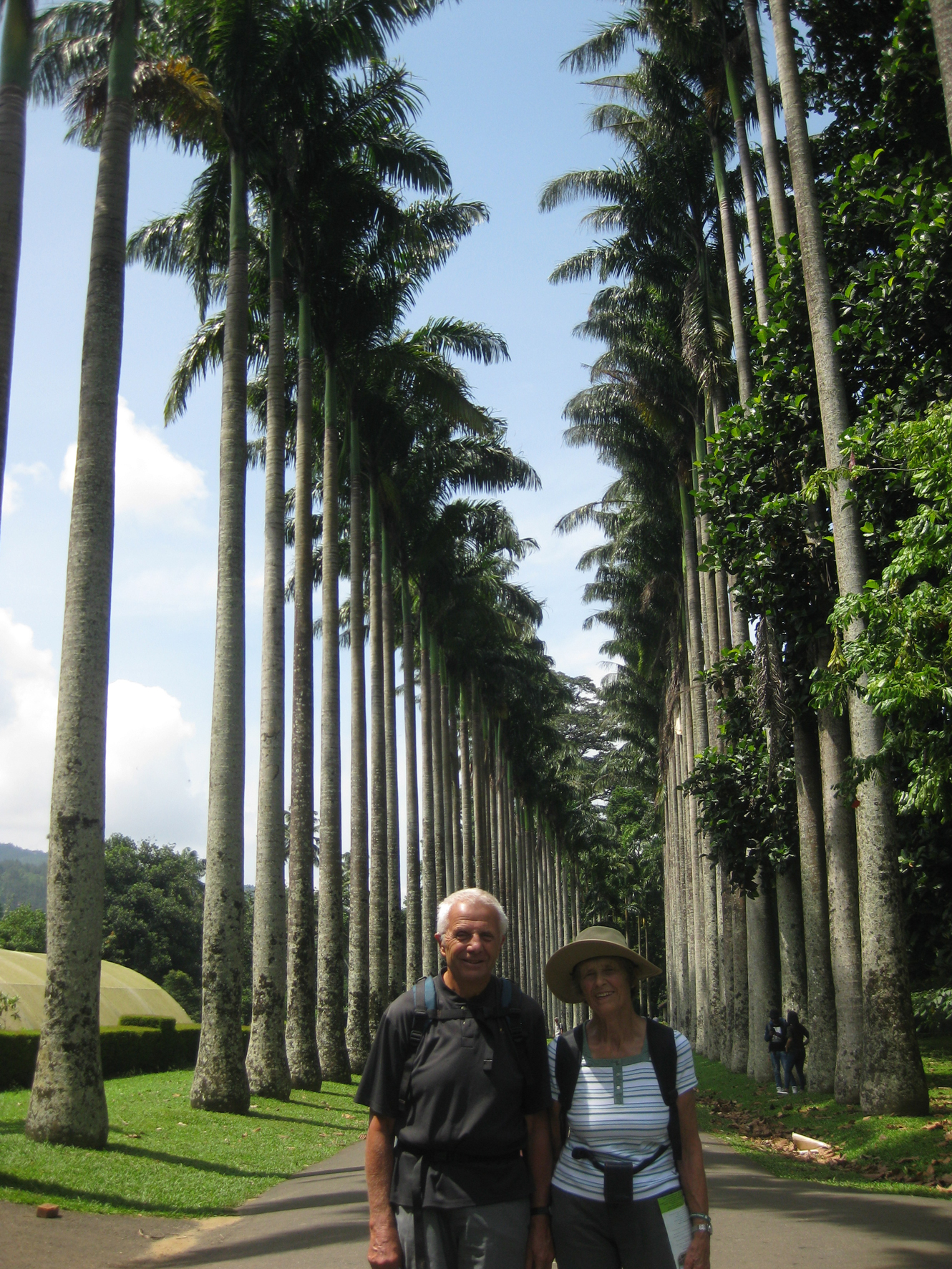
Neat lines of palms
In the afternoon we visited the local cultural dance theatre. The costumes were amazing and the dance standard was very high.
Return to the top of this page, or go to The Second Page or return to the Holidays Index